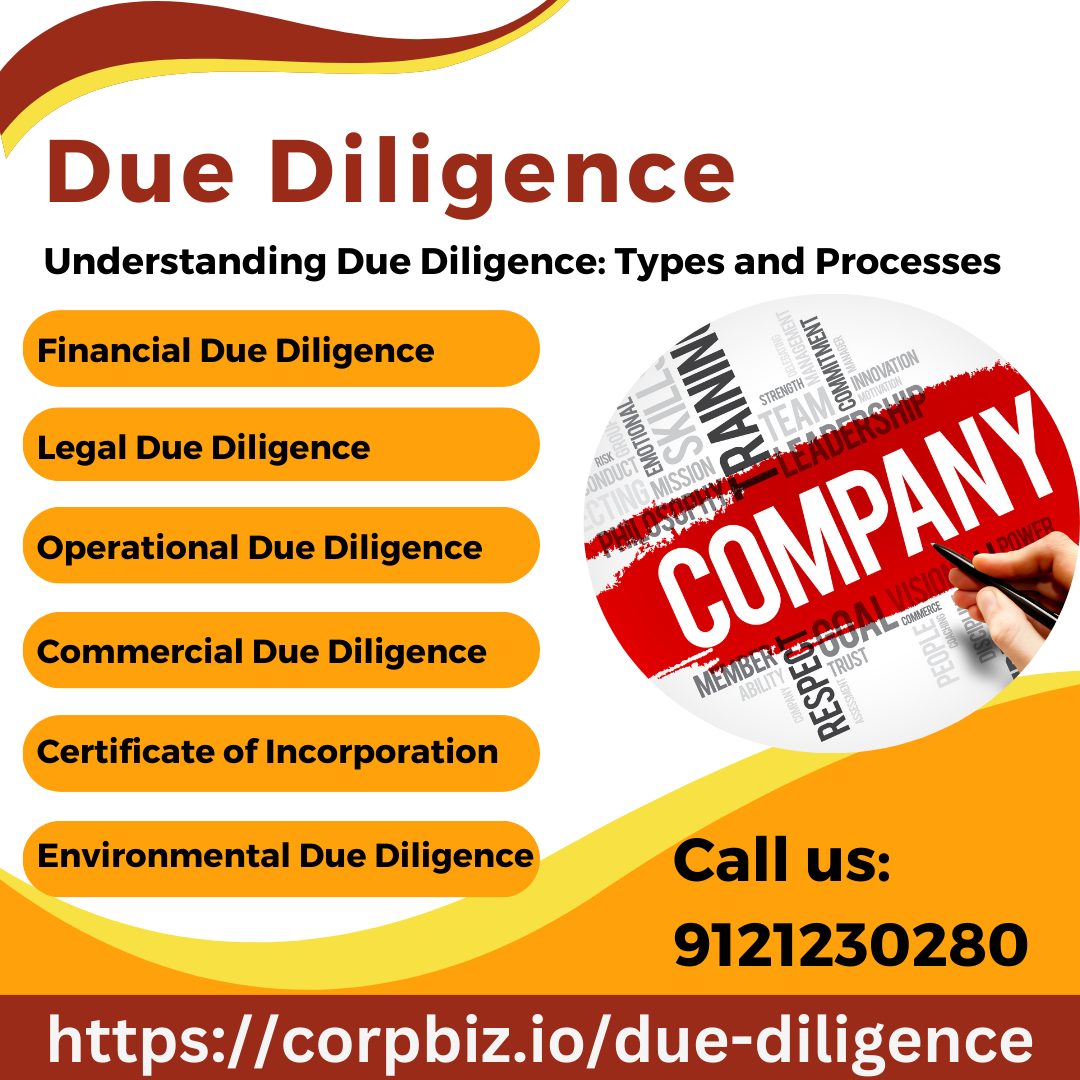A Comprehensive Guide to Due Diligence: Ensuring Smart Business Decisions

Rahul Nagar . Follow
4 months ago
Due diligence is a critical process that involves thorough investigation and analysis before entering into a business transaction. Whether you are considering a merger, acquisition, partnership, or investment, due diligence helps in identifying potential risks and opportunities, ensuring informed decision-making. In this blog, we will explore the different types of due diligence and the step-by-step process to conduct it effectively.
## Types of Due Diligence
### 1. Financial Due Diligence
Financial due diligence focuses on assessing the financial health and performance of a business. It involves reviewing financial statements, audit reports, tax returns, cash flows, debt, and liabilities. The objective is to verify the accuracy of financial information and evaluate the company's financial stability and profitability.
### 2. Legal Due Diligence
Legal due diligence aims to uncover any legal risks or liabilities that might impact the transaction. This includes examining contracts, litigation history, intellectual property rights, regulatory compliance, and employment agreements. The goal is to ensure that there are no hidden legal issues that could pose a threat to the deal.
### 3. Operational Due Diligence
Operational due diligence evaluates the efficiency and effectiveness of a company's operations. This involves analyzing production processes, supply chain management, IT systems, and customer service. The objective is to identify operational strengths and weaknesses and potential areas for improvement.
### 4. Commercial Due Diligence
Commercial due diligence assesses the market position and business model of the target company. It includes market analysis, competitor assessment, customer base, and sales strategy. The goal is to understand the market dynamics and the competitive advantage of the company.
### 5. Environmental Due Diligence
Environmental due diligence focuses on evaluating environmental risks and compliance with regulations. This involves reviewing environmental policies, waste management practices, and sustainability initiatives. The objective is to identify any environmental liabilities and ensure compliance with environmental laws.
### 6. Human Resources Due Diligence
Human resources due diligence assesses the workforce and organizational culture of the target company. It includes reviewing employee contracts, benefits, payroll, and organizational structure. The goal is to understand the talent pool, employee satisfaction, and potential HR-related risks.

## The Due Diligence Process
### 1. Preparation
The first step in the due diligence process is preparation. This involves defining the scope and objectives of the due diligence, assembling a team of experts, creating a checklist of required documents and information, and establishing a timeline.
### 2. Information Gathering
Once the preparation is complete, the next step is to gather all necessary data and documents. This includes financial statements, legal documents, operational records, and other relevant information from the target company.
### 3. Analysis
After gathering the required information, the due diligence team conducts a detailed analysis. This involves reviewing and analyzing financial performance, legal standing, operational efficiency, market position, and other relevant aspects of the business.
### 4. Site Visits and Interviews
To gain firsthand insights into the company's operations and culture, site visits and interviews are conducted. This includes visiting company facilities, interviewing key personnel, and observing operations.
### 5. Risk Assessment
The next step is to identify potential risks and issues based on the analysis and site visits. This involves evaluating the findings and identifying any red flags or areas of concern that could impact the transaction.
### 6. Reporting
Once the risk assessment is complete, a comprehensive due diligence report is prepared. This report summarizes the key findings, risks, and recommendations for the decision-makers.
### 7. Decision Making
The final step in the due diligence process is decision-making. The due diligence report is reviewed by the stakeholders, and based on the findings, they decide whether to proceed with the transaction or not.
## Conclusion
Due diligence is an essential process for making informed business decisions. By understanding the different types of due diligence and following a structured process, businesses can identify potential risks and opportunities, ensuring a smoother and more successful transaction. Whether it's a merger, acquisition, investment, or partnership, thorough due diligence is the key to making sound and strategic business choices.
If you need assistance with due diligence or any other legal matters, our team of experts is here to help. Contact us today to learn more about our comprehensive legal services and how we can support your business needs.
Recommended topics
Recommended from Guest Post
loricaricofe
Ensuring Safety in Pakistan: The Essential Role of Fire Ball Extinguishers and Safety Gloves
July 3, 2024Singhal Industries Private Limited
The Ultimate Guide to Dog Poop Bags: Everything You Need to Know
July 29, 2024john abraham



